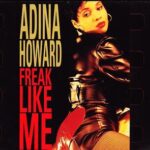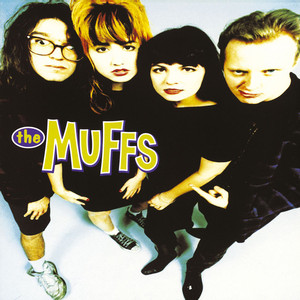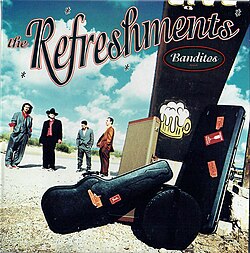 In 1995, at the height of R&B’s golden era, when smooth crooners and polished divas ruled the airwaves, a bold new voice cut through the gloss with something raw, real, and deliciously scandalous. Her name was Adina Howard, and her debut single, “Freak Like Me,” wasn’t just a song — it was a manifesto. A declaration of sexual confidence, independence, and empowerment that turned R&B on its head and forced a culture still grappling with female sexuality to take a long, hard look at itself.
In 1995, at the height of R&B’s golden era, when smooth crooners and polished divas ruled the airwaves, a bold new voice cut through the gloss with something raw, real, and deliciously scandalous. Her name was Adina Howard, and her debut single, “Freak Like Me,” wasn’t just a song — it was a manifesto. A declaration of sexual confidence, independence, and empowerment that turned R&B on its head and forced a culture still grappling with female sexuality to take a long, hard look at itself.
At a time when most women in R&B were expected to sing about love, heartbreak, or longing, Adina Howard came crashing through the door with a song that proudly proclaimed desire on her own terms. She wanted pleasure, power, and equality in the bedroom — and she said it loud. “Freak Like Me” became both a hit and a lightning rod, a track that redefined what it meant to be a woman in control of her sexuality in the male-dominated world of mid-’90s music.
Three decades later, it remains a defining anthem — not just of the era, but of a movement that gave women permission to own their sensuality without apology.
Setting the Scene: R&B in the Mid-’90s
Before Adina Howard burst onto the scene, R&B was in a polished phase. Artists like TLC, Mary J. Blige, and Brandy were blending hip-hop’s edge with R&B’s soul, while others like Toni Braxton and Boyz II Men kept the genre sleek and romantic.
Female sexuality, when expressed, was usually coded or wrapped in metaphors. Janet Jackson had flirted with sensual liberation on janet., and TLC’s CrazySexyCool began exploring the idea of empowerment and desire, but it was still rare for women to be explicitly in charge of the sexual narrative.
Then came Adina Howard — brash, beautiful, and fearless. She wasn’t interested in hinting or teasing. She didn’t whisper; she growled. She wasn’t waiting for anyone’s permission to be sexy.
When “Freak Like Me” dropped in early 1995, it felt like an earthquake. The track’s opening bassline — slinky, seductive, and immediately recognizable — set the tone. This wasn’t about coy romance; it was about raw attraction and mutual satisfaction. And Adina’s delivery made sure you knew she meant every word.
“I Need a Freak in the Morning, a Freak in the Evening…”
From the very first line, “Freak Like Me” was pure, unapologetic desire.
“I need a freak in the morning, a freak in the evening,
Just like me…”
It’s a simple line, but in 1995, it was revolutionary. Adina Howard was saying what women had been told not to say — that they wanted sex, that they craved it, and that they had standards about it. This wasn’t about being submissive or seductive for someone else’s pleasure; it was about matching energy. She wanted a partner who could keep up with her.
That was new.
For decades, male artists had written the rulebook for how sex was sung about. Marvin Gaye could croon “Let’s Get It On.” Prince could moan about purple fantasies. R. Kelly could turn every song into a bedroom soundtrack. But women who spoke the same language were often labeled “vulgar” or “unladylike.”
Adina Howard didn’t care. Her delivery was confident, sultry, and assertive. She took the same energy that male R&B stars flaunted and flipped it on its head. When she sang about what she wanted, it wasn’t to please anyone — it was to state who she was.
The Sound of a Revolution
“Freak Like Me” was produced by Bootsy Collins-inspired groove masters Keith Kinlow and Ramon “Big Tee” Thomas, who layered the track with thick bass, sharp snares, and a silky synth line that oozed 1970s funk while staying rooted in 1990s hip-hop soul.
It was seductive but confident — a balance that made it danceable, empowering, and unmistakably cool. The song’s swagger came from its funk roots; you could feel the spirit of Parliament and Rick James buried in its DNA. But the vocals — all Adina — brought the future.
She sang with a mix of command and charisma, her tone both playful and forceful. When she purred “Let me lay it on the line / I got a little freakiness inside,” you could feel the entire R&B landscape shift.
It was the kind of line that made radio programmers blush — and then play it on repeat because the audience demanded it.
Controversy and Empowerment
Not everyone was ready for what Adina Howard represented. The 1990s were a decade obsessed with the “Madonna/whore” dichotomy — women could be sexy, but only in ways that made men comfortable. Adina’s brand of sexuality didn’t ask permission, and that scared people.
Music critics and conservative groups called her lyrics “too explicit.” Some radio stations even censored the track. But Adina didn’t back down. Her confidence made her a lightning rod for both criticism and admiration. She represented the women who were tired of being told how to behave, how to desire, and how to sound.
And yet, “Freak Like Me” wasn’t vulgar — it was liberating. It didn’t objectify; it humanized. It treated female pleasure as something normal, not shameful. Adina Howard didn’t present herself as an accessory to a man’s fantasy — she was the fantasy.
In many ways, “Freak Like Me” anticipated the sexual autonomy that would later define the careers of artists like Lil’ Kim, Beyoncé, Rihanna, Megan Thee Stallion, and Doja Cat. Every woman who has proudly rapped, sung, or danced about her own sexuality owes a nod to Adina Howard kicking down that door first.
A Smash Hit and a Cultural Moment
“Freak Like Me” became an instant hit. It peaked at No. 2 on the Billboard Hot 100 and No. 1 on the R&B charts, eventually going platinum. It dominated radio, MTV, and every late-night slow jam setlist for months.
The music video — with Adina in a short black leather outfit, confident and commanding — became iconic. She wasn’t objectified; she was in charge, owning the camera, the stage, and her image.
But what really made “Freak Like Me” resonate was how relatable it felt. It wasn’t some fantasy scenario — it was a confident woman being honest about her needs. That kind of honesty was magnetic.
The song also resonated with men — not because it pandered, but because it celebrated reciprocity. Adina wasn’t dismissing men; she was inviting them to rise to her level. It was flirtation as equality.
The Fall and the Legacy
Unfortunately, Adina Howard’s relationship with her label, EastWest Records, became strained in the years following “Freak Like Me.” Her next album, Welcome to Fantasy Island, was shelved amid industry politics and image clashes. She had been too bold for her time — a woman who refused to tone herself down for executives who didn’t know how to market her.
Still, her influence never faded. “Freak Like Me” remained a staple of ‘90s R&B playlists, a classic at both dance clubs and girls’ nights, and a blueprint for artists who wanted to merge sensuality with empowerment.
In 2002, Sugababes famously revived the song in the UK with a hit remix that mashed it up with Gary Numan’s “Are ‘Friends’ Electric?”, proving its global and cross-genre appeal. That version topped the charts and introduced a new generation to Adina’s original message — one of self-possession and unapologetic freedom.
Even today, hip-hop and R&B artists sample or reference “Freak Like Me” as a badge of liberation. Its DNA can be heard in Cardi B’s “WAP,” Beyoncé’s “Partition,” and SZA’s “Kill Bill.” Every time a woman in music commands the mic to celebrate her own desire, Adina’s ghost is somewhere smiling.
Breaking Down the Barriers
It’s easy to underestimate how groundbreaking “Freak Like Me” was if you weren’t there to experience the cultural shift it caused. Before 1995, there was a ceiling for how women could talk about sex in mainstream music. You could hint, you could seduce, but you couldn’t lead with it.
Adina Howard didn’t just cross that line — she redrew it.
She brought an attitude that was equal parts street and glam, sensuality that was fierce rather than demure. She was the bridge between R&B and hip-hop’s evolving sense of identity, showing that female artists didn’t have to choose between being strong and being sexy.
In that way, she helped redefine feminism in music — not the academic kind, but the real kind, the lived kind, the kind that came from women knowing their worth and owning their bodies.
Why “Freak Like Me” Still Matters
Today, the word “freak” has lost much of its sting — but in 1995, it was taboo. Adina Howard turned it into a badge of honor. “Freak Like Me” was about embracing every part of yourself — your sensuality, your humor, your independence — and demanding a partner who could appreciate it.
It’s not a song about promiscuity; it’s a song about equality. It’s about two people meeting each other where they are, fully aware of what they want.
In an era still full of double standards, “Freak Like Me” feels as necessary as ever. It reminds us that empowerment isn’t always about politics or power suits — sometimes it’s about honesty, confidence, and joy.
And even musically, the song still holds up. That groove still slaps. That bassline still moves the body. And Adina’s voice — that smoky, confident, velvet growl — still demands attention. Play it in any club, at any decade, and watch the crowd respond.
The Lasting Groove
Nearly thirty years after it first dropped, “Freak Like Me” still hits the same. It’s not just nostalgia; it’s the sound of liberation set to a beat.
Adina Howard may not have had a long chart run, but she left an impact that reverberates through R&B, hip-hop, and pop culture. She gave voice to women who were tired of being told to be quiet. She brought sensuality into the light and made it something to be proud of.
In an industry that often rewards conformity, Adina dared to be real. “Freak Like Me” is her legacy — a funky, fearless, and fiercely feminist anthem that still reminds us what freedom sounds like.
“Freak Like Me” wasn’t just a hit song — it was a cultural turning point, a bass-driven revolution where Adina Howard declared, loud and proud, that women could want, could lead, and could own the freak inside them without shame. And that’s a legacy worth dancing to forever.


